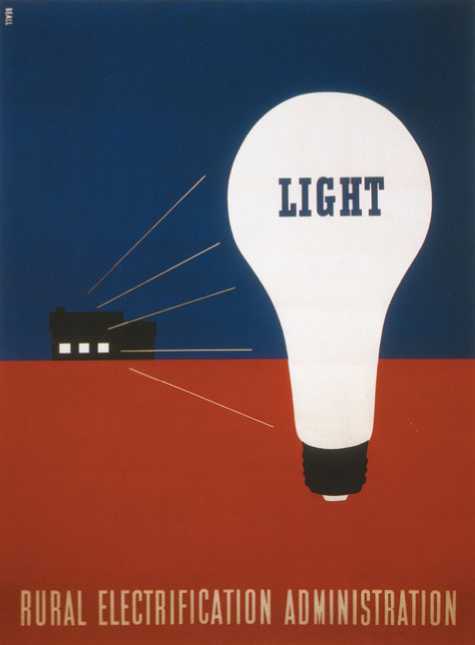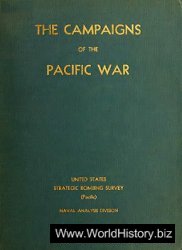The 1937 poster advertises the spread of electricity to rural parts of the nation, one of the many building programs of the New Deal. Indisputably, the New Deal visibly changed the nation; but did it succeed in reviving the economy?
Few issues in the nation's history have been more controversial. At the time and for decades afterward conservative historians such as Edgar E. Robinson denounced the New Deal as an economic failure that infringed on individual rights. Most liberals—foremost among them Arthur M. Schlesinger, Jr. (1957-1960)—acknowledged that the New Deal did not end the Depression but it did restrain corporations and address the needs of most workers, farmers, and consumers. That such people benefited from its actions was proven by how many of them voted for FDR, time and again.
William Leuchtenburg (1963) approved of much of the New Deal, but claimed that it left sharecroppers, slum dwellers, and most blacks "outside of the new equilibrium."It was but a "halfway revolution." A few years later Barton Bernstein (1968) led the far left in a blistering attack: "The New Deal failed to solve the problem of depression, it failed to raise the impoverished, it failed to redistribute income, it failed to extend equality and generally countenanced racial discrimination and segregation." The New Deal, in short, was no revolution at all.
In subsequent decades historians were more inclined to assess the New Deal in light of what was possible at the time. David Kennedy (1999), while acknowledging the New Deal's many failures, was struck by the "the boldness of its vision."
The financial crisis that hit in 2008 and 2009, triggered by inadequate government supervision of mortgage lending and complicated financial investments, caused many historians to champion the regulatory initiatives of the New Deal.

A 1937 poster shows the impact of electrification projects on remote farm homes.
Source: Edgar E. Robinson, The Roosevelt Leadership (1955); Arthur M. Schlesinger Jr., The Age of Roosevelt, 3 volumes (1957-1960); William Leuchtenburg, Franklin D. Roosevelt and the New Deal, 1932-1940 (1963); Barton Bernstein, Towards a New Past (1968); David M. Kennedy, Freedom from Fear (1999).
To muster the votes to do away with accomplished reforms, succeeded in blocking additional legislation.




 World History
World History









